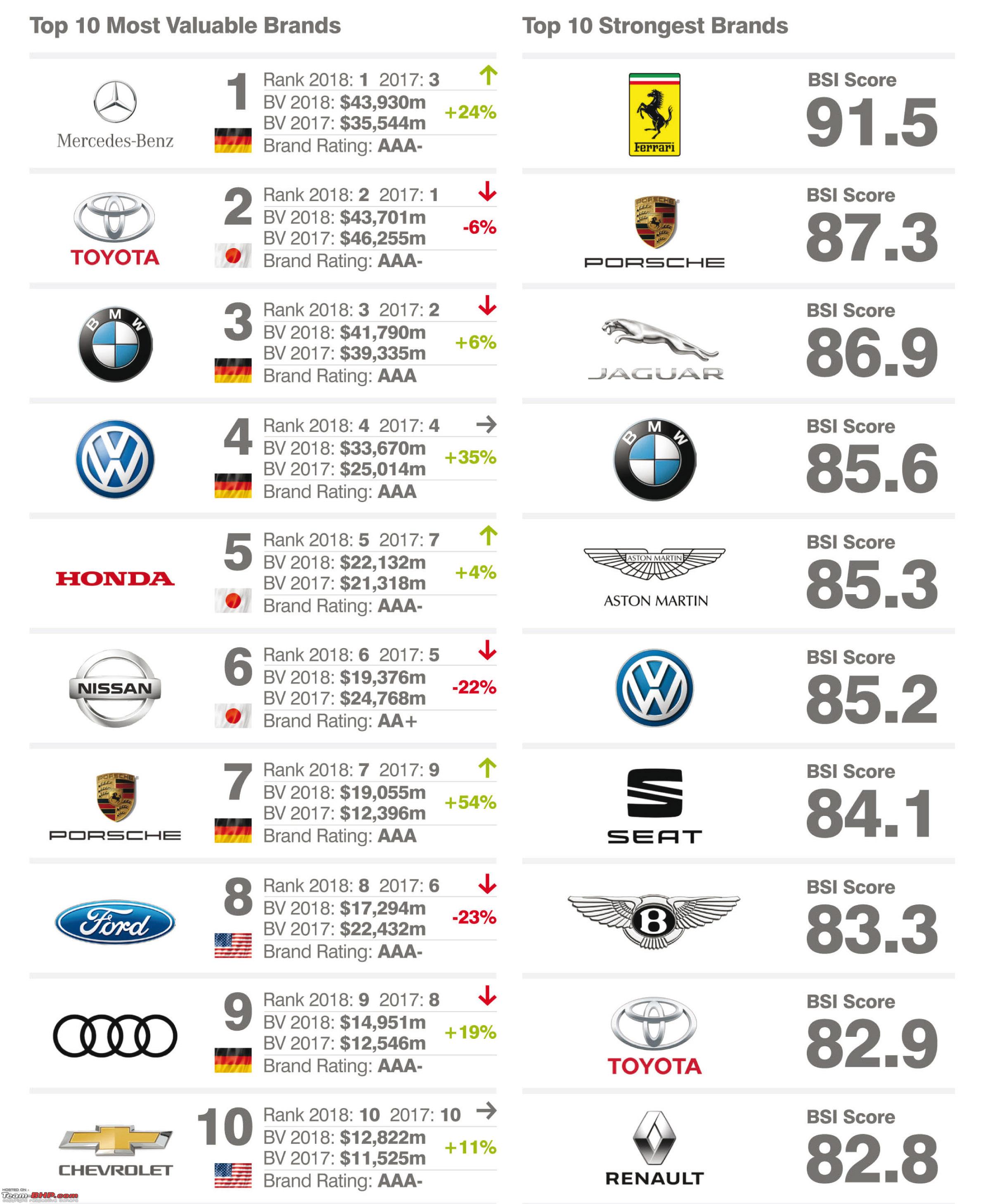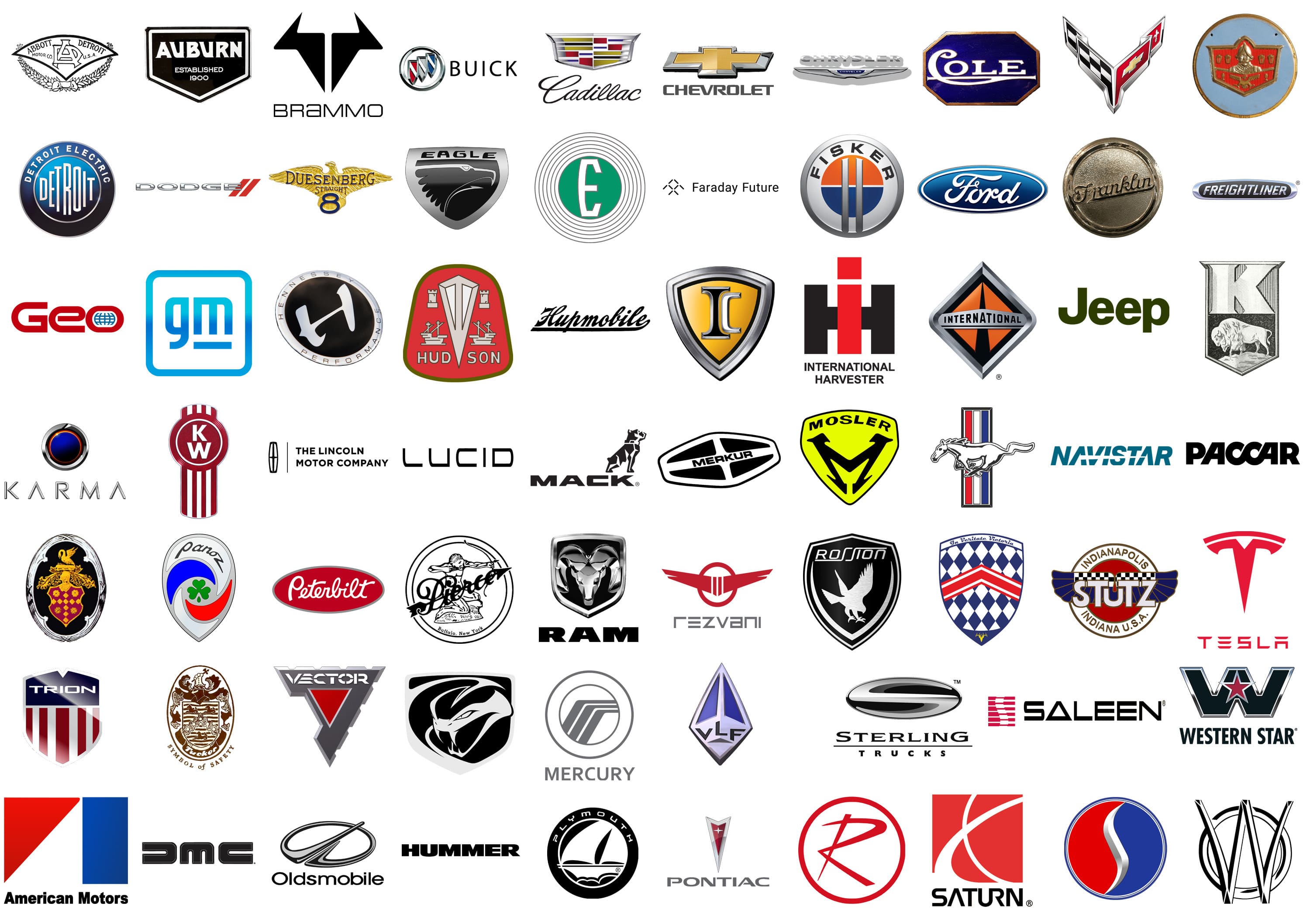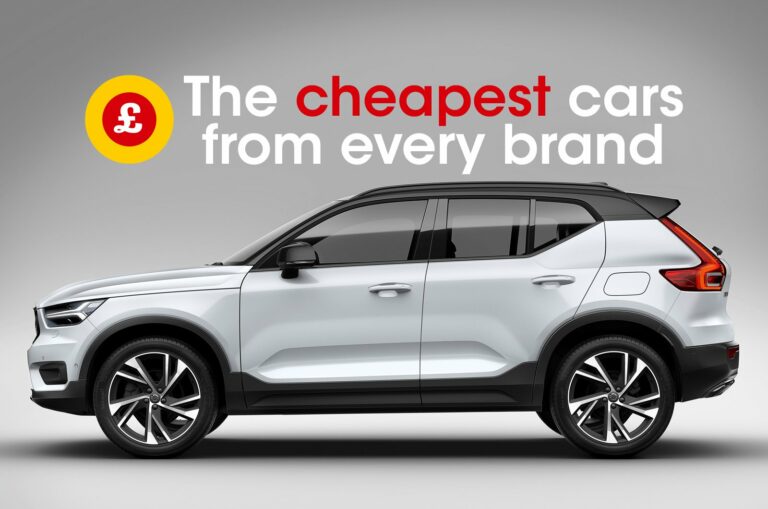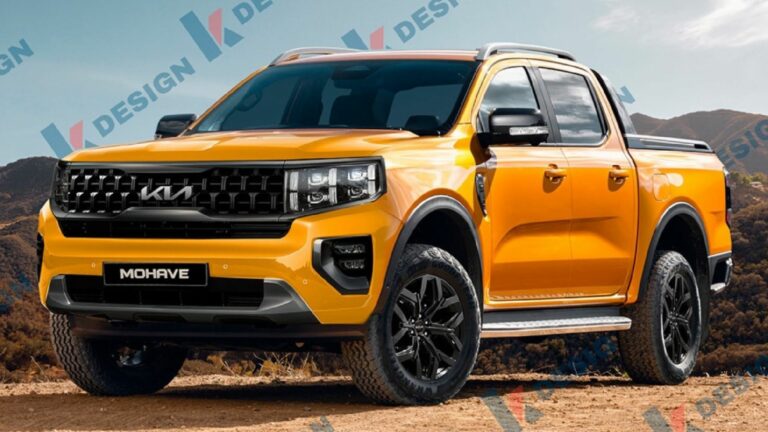What Is The Most Popular Car Brand? Unpacking the Global Automotive Landscape
What Is The Most Popular Car Brand? Unpacking the Global Automotive Landscape cars.truckstrend.com
The automotive industry is a vibrant tapestry of innovation, engineering marvels, and fierce competition. For decades, a question has lingered in the minds of enthusiasts, consumers, and industry analysts alike: "What is the most popular car brand?" While seemingly simple, the answer is far from straightforward. Popularity isn’t a monolithic concept; it’s a multifaceted diamond, reflecting sales figures, brand value, consumer loyalty, market share, and even cultural impact. Understanding what makes a car brand "popular" provides a fascinating glimpse into global consumer preferences, technological shifts, and the relentless pursuit of automotive excellence.
This comprehensive article will delve into the various dimensions of car brand popularity, identify the perennial frontrunners, explore the factors that drive their success, and cast an eye towards the future of this dynamic industry.
What Is The Most Popular Car Brand? Unpacking the Global Automotive Landscape
Defining "Popularity": More Than Just Sales Figures
To truly grasp what constitutes the "most popular car brand," we must first define what "popularity" entails in the automotive context. It’s not just about who sells the most units, although that’s a significant indicator. Here are the key metrics that collectively paint a picture of a brand’s standing:
- Global Sales Volume: This is often the most direct and frequently cited measure. It tracks the total number of new vehicles sold by a brand worldwide within a specific period (e.g., annually). A brand consistently topping sales charts undeniably holds a strong claim to popularity.
- Market Share: While sales volume gives raw numbers, market share contextualizes it by showing a brand’s percentage of the total automotive market. A high market share indicates significant penetration and consumer preference within that market.
- Brand Value and Equity: Beyond units sold, this metric assesses the financial worth of the brand itself. Organizations like Interbrand and Forbes publish annual rankings that consider a brand’s financial performance, its role in influencing consumer choice, and its competitive strength. A high brand value often correlates with strong recognition, trust, and perceived quality.
- Consumer Perception and Loyalty: This qualitative measure reflects how consumers view a brand. Is it associated with reliability, innovation, luxury, or affordability? High customer loyalty, demonstrated by repeat purchases and strong word-of-mouth recommendations, is a powerful indicator of popularity and enduring appeal.
- Global Reach and Regional Dominance: A brand might be a sales leader globally but have limited presence in certain regions, or vice-versa. True global popularity implies a strong footprint across multiple continents and diverse markets.
- Social Media Presence and Engagement: In the digital age, a brand’s online footprint – followers, engagement rates, positive mentions – can reflect its cultural relevance and ability to connect with a younger demographic.
- Used Car Market Demand & Resale Value: A popular brand often maintains strong demand in the secondary market, leading to higher resale values. This reflects perceived reliability, durability, and desirability even after initial ownership.

Considering these diverse factors, the answer to "What is the most popular car brand?" becomes a nuanced discussion rather than a single name.
The Contenders for the Crown: A Global Perspective

While various brands vie for the top spot depending on the metric or region, one brand consistently emerges as a global powerhouse, particularly when measured by sheer sales volume:
Toyota: For many years, Toyota has held the undisputed title of the world’s best-selling car brand. Its popularity is rooted in several core strengths:
- Unrivaled Reliability: Toyota’s reputation for building durable, long-lasting vehicles is legendary, fostering immense trust among consumers worldwide.
- Fuel Efficiency: The brand has been a pioneer in hybrid technology (e.g., Prius) and continues to offer highly efficient powertrains across its lineup.
- Extensive Global Footprint: With manufacturing plants and sales networks in virtually every corner of the globe, Toyota’s reach is unparalleled.
- Diverse Model Lineup: From the compact Corolla and Camry sedan to the popular RAV4 and Highlander SUVs, and the rugged Hilux pickup, Toyota offers a vehicle for nearly every consumer need and budget.
- Strong Resale Value: The reliability and demand for Toyota vehicles ensure they retain their value well in the used car market.

While Toyota typically leads in sales, other brands are significant contenders in various aspects of popularity:
- Volkswagen Group: A colossal automotive empire, VW Group (including Audi, Porsche, Skoda, Seat, Lamborghini, Bentley, and more) often rivals Toyota in overall vehicle production and sales when considering its vast portfolio. It dominates the European market and has a significant presence in China.
- Hyundai-Kia: This South Korean duo has seen a meteoric rise, offering stylish designs, impressive warranties, and a strong value proposition, making them increasingly popular globally.
- General Motors & Ford: These American titans remain dominant in their home market, particularly with their highly popular pickup trucks (Ford F-Series, Chevrolet Silverado) and SUVs. They command significant market share in North America and have a global presence.
- Mercedes-Benz, BMW, & Audi: The German luxury triumvirate consistently rank high in brand value and prestige. While their sales volume is lower than mass-market brands, their influence, technological innovation, and desirability are immense in the premium segment.
- Tesla: A true disruptor, Tesla has revolutionized the EV market. While its overall sales volume is still smaller than traditional giants, its brand buzz, technological leadership, and stock market valuation place it among the most talked-about and "popular" brands of the modern era, particularly among tech-savvy consumers.
Factors Driving Brand Popularity
What makes consumers gravitate towards one brand over another? The success of the most popular car brands can be attributed to a combination of strategic decisions and market forces:
- Reliability and Durability: This remains a foundational pillar. Consumers want vehicles that start every time, require minimal repairs, and last for many years. Brands like Toyota and Honda have built their reputation on this.
- Innovation and Technology: From advanced safety features (ADAS) to cutting-edge infotainment systems, electric powertrains, and autonomous driving capabilities, brands that push technological boundaries capture consumer imagination and loyalty (e.g., Tesla, Mercedes-Benz).
- Design and Aesthetics: A car’s appearance plays a crucial role in initial attraction. Brands that consistently offer appealing and distinctive designs resonate strongly with buyers.
- Affordability and Value for Money: For many, the purchase price, running costs, and overall value proposition are paramount. Brands offering a good balance of features, quality, and price appeal to a broad market segment.
- Marketing and Brand Storytelling: Effective marketing creates an emotional connection. Brands that successfully communicate their identity, values, and unique selling propositions build strong recognition and desire.
- After-Sales Service and Support: A comprehensive dealership network, accessible service centers, reliable parts availability, and excellent customer service contribute significantly to customer satisfaction and loyalty.
- Environmental Responsibility: Growing consumer awareness about climate change means brands demonstrating commitment to sustainability through EVs, efficient engines, and eco-friendly manufacturing processes gain favor.
- Safety Features: A strong emphasis on passive and active safety features is a non-negotiable for many buyers, with brands consistently scoring high in safety ratings often seen as more desirable.
Regional Nuances: Popularity Varies by Continent
While global leaders exist, popularity is often localized. What’s popular in one country might not be in another, reflecting diverse economic conditions, cultural preferences, and infrastructure.
- North America: Dominated by large pickup trucks (Ford F-Series, Chevrolet Silverado, Ram) and SUVs. Toyota, Ford, GM, Honda, and increasingly Tesla are strong players.
- Europe: A preference for compact cars, sedans, and premium brands. Volkswagen, Mercedes-Benz, BMW, Audi, Peugeot, Renault, and Fiat hold significant market share. The shift to EVs is accelerating rapidly here.
- Asia (especially China): China is the world’s largest car market. While international brands like VW and Toyota are strong, domestic brands (e.g., BYD, Geely, Chery, SAIC) are rapidly gaining popularity, especially in the EV segment. Japan and South Korea have strong domestic brands (Toyota, Honda, Hyundai, Kia) that also have significant export markets.
- Emerging Markets (Africa, South America): Affordability, durability, and ease of maintenance are often paramount. Used cars are common, and brands known for robust, simple vehicles (often older models of global brands or regional manufacturers) tend to be popular.
The Future of Popularity: EVs, Connectivity, and Beyond
The automotive industry is undergoing its most profound transformation in a century. The factors defining popularity are shifting:
- Electric Vehicles (EVs): The transition to EVs is accelerating. Brands that can deliver compelling electric vehicles with good range, fast charging, and competitive pricing will gain significant market share and popularity. Tesla’s early lead has forced traditional automakers to invest billions, and their success in this segment will be crucial.
- Software and Connectivity: Cars are becoming computers on wheels. Brands offering seamless connectivity, over-the-air updates, intuitive infotainment, and integrated digital services will stand out.
- Autonomous Driving: As self-driving technology matures, brands at the forefront of this innovation will attract early adopters and shape future perceptions of safety and convenience.
- Sustainability: Beyond just EVs, consumers will increasingly scrutinize a brand’s entire supply chain and manufacturing processes for environmental and ethical practices.
- New Mobility Models: The rise of ride-sharing, car-sharing, and subscription services might redefine the concept of car ownership and, consequently, brand popularity. Brands that successfully integrate into these new mobility ecosystems could gain new forms of "popularity."
Practical Advice and Actionable Insights
For consumers, understanding "popularity" means:
- Don’t just follow the crowd: While popular brands often offer reliability and good value, always consider your specific needs, budget, and driving habits.
- Look beyond sales figures: Research brand reliability ratings, safety scores, and long-term ownership costs, not just initial popularity.
- Consider resale value: A popular brand typically holds its value better, which is an important financial consideration.
For car brands, maintaining or gaining popularity means:
- Continuous Innovation: Stay ahead of technological trends, especially in electrification and digitalization.
- Customer-Centricity: Prioritize customer service, build strong relationships, and listen to feedback.
- Build Trust: Uphold quality, reliability, and safety standards to maintain consumer confidence.
- Embrace Sustainability: Integrate eco-friendly practices into every aspect of the business.
- Adapt to Regional Needs: Understand and cater to the unique preferences and economic realities of different markets.
Global Car Brand Popularity Metrics (Illustrative Data)
This table provides an illustrative overview of how different popular car brands might stack up across various metrics. Please note that exact figures fluctuate annually and are estimates for general understanding.
| Brand Name | Global Sales Volume (2023 Est. Millions) | Estimated Global Market Share (2023 Est.) | Interbrand Best Global Brands Ranking (2023) | Key Strengths | Primary Regions of Dominance |
|---|---|---|---|---|---|
| Toyota | 11.2 | ~13% | #6 (Most Valuable Auto Brand) | Reliability, Hybrids, Global Reach, Resale Value | Global (esp. Asia, North America, Europe) |
| Volkswagen | 9.2 (Group) | ~11% (Group) | #10 (VW Brand) | Engineering, Diverse Portfolio, European Dominance | Europe, China |
| Hyundai-Kia | 7.3 | ~8.5% | #35 (Hyundai), #47 (Kia) | Design, Warranty, Value, Rapid Growth | Asia, Europe, North America |
| Ford | 4.4 | ~5.1% | #8 (Auto) | Trucks (F-Series), SUVs, American Market Leadership | North America, Europe |
| Honda | 4.0 | ~4.7% | #27 | Reliability, Engineering, Fuel Efficiency | Asia, North America |
| Mercedes-Benz | 2.5 | ~2.9% | #7 (Auto) | Luxury, Innovation, Brand Prestige | Global Premium Market |
| BMW | 2.2 | ~2.5% | #10 (Auto) | Driving Dynamics, Luxury, Performance | Global Premium Market |
| Tesla | 1.8 | ~2.1% | #12 (Auto, Rapid Rise) | EV Leadership, Technology, Brand Hype | Global EV Market (esp. North America, China, Europe) |
| General Motors | 6.0 | ~7.0% | Not Ranked (Company) | Trucks, SUVs, American Market Share, EV Investment | North America, China |
(Note: Sales volumes are for the respective brand or group’s automotive sales. Interbrand rankings are for the primary brand. Market share estimates are approximate and vary by source.)
Frequently Asked Questions (FAQ)
Q: Is Toyota always the most popular car brand?
A: When measured by global sales volume, Toyota has consistently been the world’s best-selling car brand for many years. However, "popularity" can also be measured by brand value, regional dominance, or consumer perception, where other brands may lead.
Q: How is "popularity" measured for car brands?
A: Popularity is measured by a combination of factors including global sales volume, market share, brand value/equity (financial worth of the brand), consumer perception and loyalty, global reach, and even social media engagement.
Q: Which car brand is most popular in the USA?
A: In the USA, Ford (primarily due to its F-Series trucks), Chevrolet, and Toyota consistently rank among the top-selling and most popular brands.
Q: Are luxury car brands popular globally?
A: Yes, luxury brands like Mercedes-Benz, BMW, and Audi are highly popular and hold significant brand value globally, particularly in the premium segments. While their unit sales are lower than mass-market brands, their influence and profitability are immense.
Q: Will electric car brands like Tesla become the most popular?
A: Tesla has already become the most popular EV brand and a highly influential automotive brand overall due to its innovation and brand appeal. As the world transitions to electric vehicles, brands that successfully lead this shift, whether traditional automakers or new EV players, are poised to become the most popular.
Q: What factors make a car brand popular?
A: Key factors include reliability, innovation and technology, appealing design, affordability and value for money, strong marketing, excellent after-sales service, and a commitment to safety and sustainability.
Conclusion
The question "What is the most popular car brand?" opens a window into the dynamic and ever-evolving world of automotive manufacturing and consumer preferences. While Toyota has consistently held the crown for global sales volume, its reign is a testament to its unwavering commitment to reliability, efficiency, and widespread accessibility. Yet, popularity is a multi-faceted concept, encompassing the innovation of Tesla, the luxury of Mercedes-Benz, the engineering prowess of the Volkswagen Group, and the regional strengths of countless others.
As the industry hurtles towards an electric, connected, and increasingly autonomous future, the landscape of popularity will continue to shift. The brands that will truly remain "most popular" are those that not only adapt to technological advancements but also consistently understand and meet the evolving needs and desires of consumers worldwide, proving that popularity is not just about sales, but about enduring relevance and connection.






